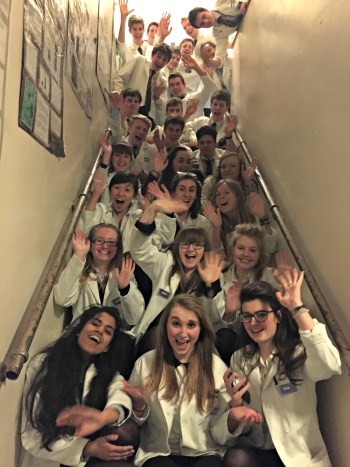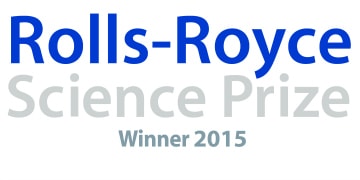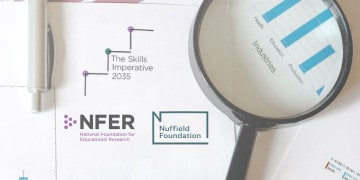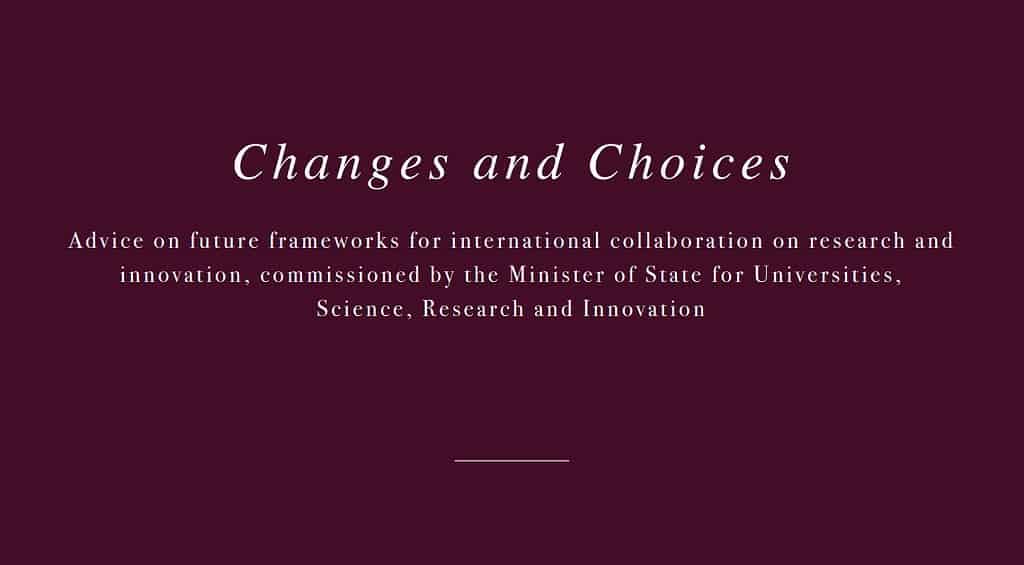Hayley Andrews, Biology teacher at the Judd School in Kent and leader of DNAvigate, talks about her experience educating herself, students, and the public about the past and future of DNA technologies
DNAvigate – a hitchhiker’s guide to DNA
16 Nov 2016
In 1665, Robert Hooke first coined the term ‘cell’ in his world changing publication ‘Micrographia’. It was nearly three hundred years later when Watson and Crick discovered the structure of DNA. Then within only twenty-five years, we were able to cut DNA out of a mammalian cell and insert it into a bacterium, ultimately revolutionising the treatment of diabetes. This was only the beginning. By the turn of the last century, science continued to accelerate; we had mapped the entire human genome and I was about to have my fourth child.
The latter two events are significantly linked for me; by the time I had decided my brood were old enough for me to go back to work (starting teacher training) I was entering a world where these Nobel-winning bacterial experiments were now happening in A-level classrooms, and suddenly the subject I knew and loved had left me just a little behind.

Not one to be put off, I went on a course to upgrade my subject knowledge and began to realise that if this area of science had accelerated away from me – a biologist, it must be baffling to the general public. I could also see how important to our lives the advancements in this field were and that everyone should be informed enough to have an opinion on it.
Another revelation was that A-level specifications were not keeping up with exponential developments in biotechnology, and that areas I knew would be of interest to my very-able students didn’t get a mention! I was concerned that students might be setting out on career paths completely unaware of blossoming new areas and unprepared to approach them. And yet the students at my school were lucky because we already had amazing biotech equipment.
And so DNAvigate was born. This was the project proposed to the Rolls-Royce Science Prize (RRSP) competition whereby local schools and the general public were invited into our labs for the evening to time travel through a series of ten stations, each depicting a pivotal part of DNA history with a practical activity (from Hooke, through Darwin, Mendel, Franklin, Jefferies and up to the future). Our Year 13 students became the teachers and were able to break away from the constraints of their A level course.
Our hard work paid off, and we won, and now we have seen the future. A future which heavily features synthetic biology, an emergent field which could well hold the answers to many of the world’s problems, including disease, climate change and food/fuel shortages. Through the project we became aware of the international competition in this field, iGEM (the international Genetically Engineered Machine). iGEM started as a collegiate competition 12 years ago and came down to high school level 5 years ago but there are presently no UK (school) entries.
We need to be in the game; and so the next phase commences. I am heading off to Boston to judge at this years’ iGEM Jamboree and on my return, the Judd School will begin readying a team for next year. Continuing the altruistic nature of DNAvigate and very much in the spirit of iGEM, we aim to make the path smoother for other UK schools to follow.

Related articles

The Physiological Society’s policy team on the health challenges facing older workers and the urgent need to develop a strategy to ensure older people are happy and healthy at work.

Jo Reynolds, Director of Science and Communities at the Royal Society of Chemistry, on the RSC’s new summary report looking to unlock the potential of deep tech SMEs.

Lisa Morrison Coulthard, Research Director at the National Foundation for Education Research, on the Nuffield Foundation funded five year research programme providing insights into the essential employment skills needed for the future workforce

Sir Adrian Smith, Institute Director and Chief Executive of The Alan Turing Institute, and Graeme Reid, Professor of Science and Research Policy at UCL, set out the findings from their new independent report on international partnership opportunities for UK research and innovation